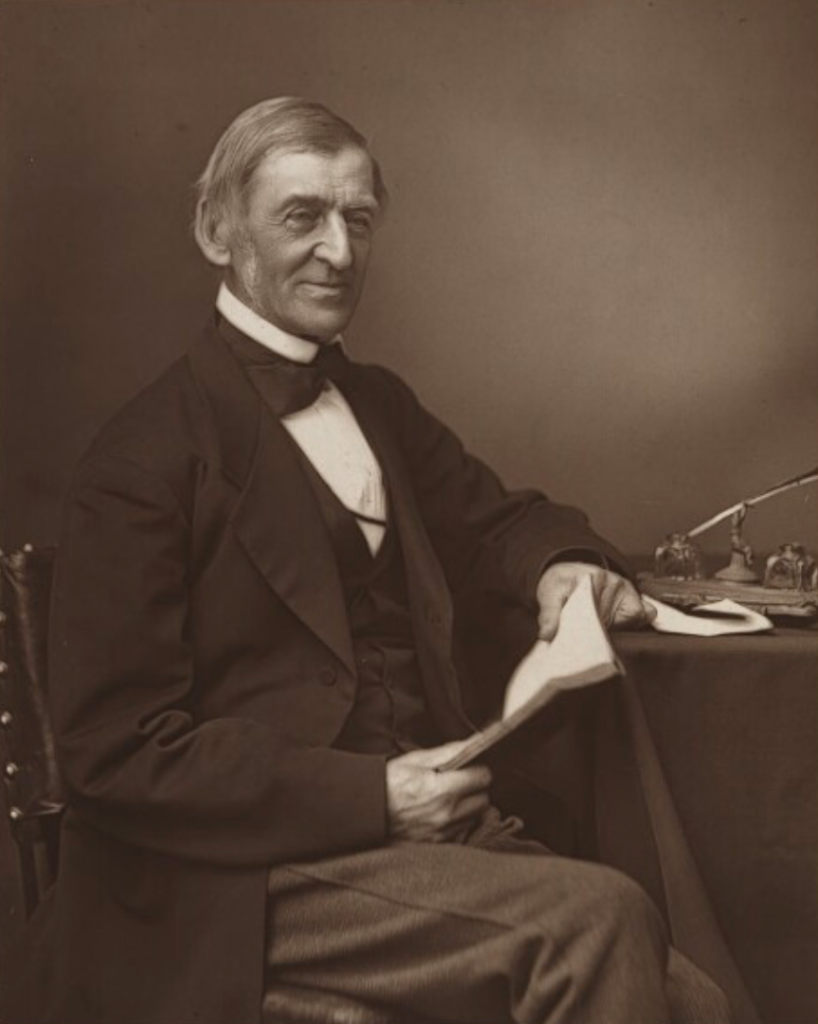“Give All to Love”: New film spotlights Emerson as a deeply original, a radical thinker – and features James Marcus, too
Tuesday, July 19th, 2022
James Marcus, former editor of Harper’s Magazine and author of Amazonia: Five Years at the Epicenter of the Dot-Com Juggernaut, has been laboring for years on a book about Ralph Waldo Emerson, and we can’t wait for it to come out. Now he’s going to be in an Emerson film, too. Here’s more from Globe Newswire:
“Ralph Waldo Emerson is undoubtedly not only the father of American literature and the guiding spirit of that flinty idea called ‘Transcendentalism,'” commented Michael Maglaras, “but he is also the father of our American conscience.”
Emerson (1803-1882), through his journals, essays, lectures, and poetry, guided the development of American thought, spiritual expansion, and adherence to moral principles. Emerson’s approach to living and to life was dynamic, forceful, and radical in its conception and fulfillment.

ASHFORD, Conn., July 06, 2022 (GLOBE NEWSWIRE) — Connecticut-based independent filmmakers Michael Maglaras and Terri Templeton of 217 Films announce that their new film project will be a full-length documentary on America’s greatest philosopher and thinker, Ralph Waldo Emerson. “Ralph Waldo Emerson: Give All to Love” will be their ninth film in 18 years and the eighth “essay in film” by writer/director Michael Maglaras.
“Without Emerson’s legacy,” said Maglaras, “it would be difficult to imagine American cultural life and impossible to imagine the development of America as a society. Emerson is the spiritual father of the poetry of Walt Whitman, the music of Charles Ives, the teachings of Martin Luther King, Jr.”
Currently being shot on location in and around Concord, Massachusetts, this film will have as its focal point and backdrop “Bush”: the wonderful Emerson home where the poet and his wife Lidian reared their children and where Emerson, the great “Sage of Concord,” resided as a simple but revered citizen of America until his death.
Emerson scholar and writer James Marcus will be featured in the film. “I’m delighted to be collaborating with director Michael Maglaras on this important project that will bring Ralph Waldo Emerson to life. Emerson speaks to our time with tremendous urgency…touching on the entirety of the American experience.”
Bay Emerson Bancroft, President of the Ralph Waldo Emerson Memorial Association, has said of this film project, “We are so pleased to endorse this new documentary film on Emerson…really the first of its kind…and to cooperate with the filmmakers on its production. As we approach the 220th anniversary of Emerson’s birth, this film will introduce him to an entirely new audience.”
“What’s important for me as a filmmaker is not only what Emerson wrote and said,” added Michael Maglaras, “but also that he surrounded himself with people of brilliance, such as Margaret Fuller, Henry David Thoreau, and Louisa May and Bronson Alcott. To be yourself in a world that is constantly trying to make you something else is the greatest accomplishment… wrote Emerson. This film will capture the essence of Emerson as the deeply original and radical thinker he was.”
James told me on Twitter: “I think it’s going to be a classy, smart, artful film, and the first Emerson documentary in a really long time.”






